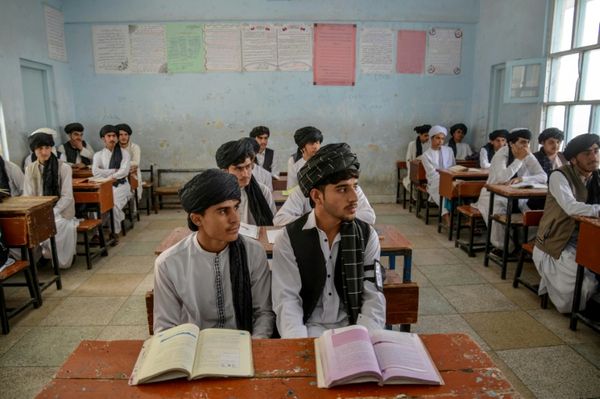
Girish Karnad, who died in his sleep in his Bengaluru home last week, was a colossus. Karnad had four careers, and he excelled in each. He was arguably the most influential playwright produced by India since Independence, whose oeuvre was astonishingly wide in its thematic and temporal range. He wrote at least half a dozen great plays; these included the political parable, Tughlak, the social reformist, Taledanda, and the darkly comic satire, Odakalu Bimba. (All were written originally in Kannada, all performed in most of the languages of the Eighth Schedule). He was an outstanding actor — as witness his work in the early films in Hindi of Shyam Benegal, and also in Pattabhirama Reddy’s Kannada classic, Samskara. He was an accomplished director, making films of major novels by KV Puttappa and SL Bhyrappa. And he was an able administrator, of the Film and Television Institute of India in Pune (where he mentored, among others, Naseeruddin Shah, Om Puri, and Tom Alter), of the Sangeet Natak Akademi in New Delhi, and of the Nehru Centre in London.
I was once travelling from Bengaluru to Mumbai. Karnad was in the same flight, a few rows ahead of me. He had a pen poised over a sheaf of papers as I passed him. When I asked what he was doing, he said he was correcting the proofs of the Marathi translation of his new play. My admiration for Karnad, already very high, rocketed further skywards. A man whose mother tongue was Konkani and who wrote in Kannada and spoke flawless English was apparently entirely comfortable in Marathi too.
But it was not just his mastery of many languages that set Karnad apart from other writers and artists. No one I knew so nobly carried the richness and depth of Indian civilisation in his body, and in his soul — and so utterly unselfconsciously too. In his life and work, he seamlessly blended North and South, the folk and the classical, the demotic and the scholarly. He was equally at ease speaking of the music of Kesarbai Kerkar and of Mohammad Rafi, of the dance of Balasaraswati and of Farah Khan, of the moral philosophy of Basava and of BR Ambedkar. And he could talk with insight about Shakespeare and Philip Larkin as well.
After Gauri Lankesh was murdered in September 2017, it was rumoured that Girish Karnad was the next writer on the terrorist hitlist. So I called Girish one morning and asked if I could see him the same afternoon. He lived an hour’s drive away, and given his commitments, I would normally have mailed several days in advance to set up a meeting.
Girish welcomed my impulsive call, and asked me to come over. I drove across the desolate city to the Karnads’ house in JP Nagar. Outside, a man in uniform posted to ostensibly guard the writer was sitting on a chair, asleep. As my car screeched to a halt he woke up, and escorted me inside.
I came intending to talk for perhaps half an hour, but stayed for four hours. We spoke of Gauri Lankesh, of course, but also of other matters — including the trajectory of our own lives. I got Girish to talk of his early days in Dharwad, and he got me to talk of my boyhood in Dehradun. We had both moved from a small town to a great metropolis; he to Mumbai, me to Delhi, before both finding ourselves in Bengaluru, a town when we first knew it and a city when we came to live in it. We spoke of our siblings — he had a musician brother, I a doctor sister — and of other things that normally did not figure in our otherwise literary and intellectual conversations.
When, night having fallen, I got up to leave, Girish walked me outside to my car. The security guard was nowhere to be seen. Girish thanked me for the spontaneous visit which, he said, both his doctor wife, Saras, and he had welcomed. I answered: “I suppose it takes the murder of a fellow writer for two writers who live in the same city to seek out one another.”
At this stage Karnad himself was quite ill, with a degenerative respiratory disease. The next January he visited Dharwad, on what he knew would be his final visit to the town where he had been raised, studied, and written his first plays. He said I must come with him. I did. I thus had the rare, but also ineffably sad, privilege of being with Girish Karnad on his last trip to his home town, accompanying him up the stairs of the Laxmi Building for his last peep into the offices of his long-time publishers, Manohara Grantha Mala, in Subhas Road, Dharwad.
Karnad had a highly developed social conscience, and a deep love for his country. Yet he never paraded his patriotism. His dignity and his rectitude would not allow it. He had left instructions that, when he died, there would be no state funeral. He knew that sundry politicians would want to come and hover around his body, taking pictures, seeking to cleanse their sins by illegitimate association with someone who was not just the greatest Kannada writer, but the greatest Kannadiga, of his age.
His courage in standing up to fundamentalists has led some to celebrate Karnad as an exemplary “activist” and “public intellectual”. This, to my mind, is a mischaracterisation. India has a hundred (and more) writers and intellectuals who speak out and stand up in public. But there was only one Girish Karnad. We should remember him rather as a great playwright and superb actor, and as a profoundly civilised human being, who had forgotten more about Indian culture than the present-day defenders of Bharatiya Sanskriti ever knew.
Ramachandra Guha is the author of Gandhi: The Years That Changed The World
The views expressed are personal
First Published: Jun 15, 2019 22:34 IST







